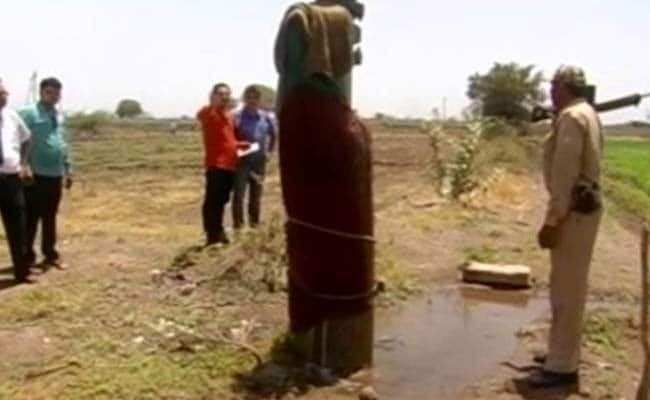There are about 300 valves on the pipeline which carry the water to Saurashtra and Kutch and at various places, leaks have been detected.
Surendranagar:
Stung by increased incidences of water theft, the Gujarat government has increased its surveillance along the pipelines carrying drinking water from Narmada projects to parched areas of the state -- particularly Saurashtra and Kutch.
Around four platoons of the state reserve police force have been deployed in four districts through which the pipelines pass.
The state government recently stopped providing Narmada water for irrigation saying drinking water is a priority. Since then, thefts have increased. In the last 15 days, 30-odd theft cases have been detected.
NDTV accompanied a patrolling team in Surendranagar district of Saurashtra region and found thefts being carried out at several points.
"The air valves of the underground pipeline are tampered with and drinking water is diverted to the nearby fields," said Manan Dave, an engineer with the Gujarat Water Infrastructure Ltd, or GWIL, a government body responsible for checking such pilferages.
 There are about 300 valves on the pipeline which carry the water to Saurashtra and Kutch and at various places, leaks have been detected. The state government has now moved in the SRP personnel and teams from GWIL registering offences against those found carrying out the act.
There are about 300 valves on the pipeline which carry the water to Saurashtra and Kutch and at various places, leaks have been detected. The state government has now moved in the SRP personnel and teams from GWIL registering offences against those found carrying out the act.
Water resource Minister Vijay Rupani said given the 11 per cent water was left in reservoirs, priority is has been given to drinking water from Narmada project, which supplies potable water to half the state.
"The farmers don't realise that by pilferage, the drinking water needs are impacted... that's why teams from the police revenue and water supply board are constantly monitoring,'' said legal consultant to GWIL, Jayesh Dave.
The farmers put the blame on the state government, pointing out that with water being stopped for irrigation, they have limited options. "There is no water for our fields... our cattle running short of fodder... what do we do?" said Bagubhai, a farmer from the area.
Around four platoons of the state reserve police force have been deployed in four districts through which the pipelines pass.
The state government recently stopped providing Narmada water for irrigation saying drinking water is a priority. Since then, thefts have increased. In the last 15 days, 30-odd theft cases have been detected.
NDTV accompanied a patrolling team in Surendranagar district of Saurashtra region and found thefts being carried out at several points.
"The air valves of the underground pipeline are tampered with and drinking water is diverted to the nearby fields," said Manan Dave, an engineer with the Gujarat Water Infrastructure Ltd, or GWIL, a government body responsible for checking such pilferages.

Gujarat government has increased its surveillance along the pipelines carrying drinking water from Narmada projects to parched areas of the state.
Water resource Minister Vijay Rupani said given the 11 per cent water was left in reservoirs, priority is has been given to drinking water from Narmada project, which supplies potable water to half the state.
"The farmers don't realise that by pilferage, the drinking water needs are impacted... that's why teams from the police revenue and water supply board are constantly monitoring,'' said legal consultant to GWIL, Jayesh Dave.
The farmers put the blame on the state government, pointing out that with water being stopped for irrigation, they have limited options. "There is no water for our fields... our cattle running short of fodder... what do we do?" said Bagubhai, a farmer from the area.
Track Latest News Live on NDTV.com and get news updates from India and around the world

